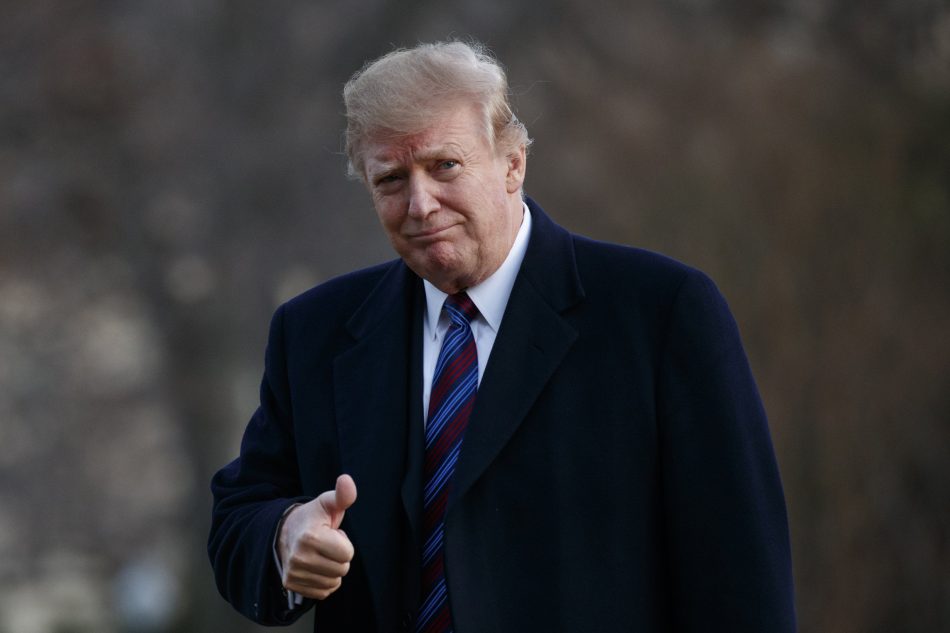For the first time in US history, a president has been impeached twice. Meanwhile, four years of Donald Trump has resulted in the Republicans losing both the House and the Senate, as well as states that are traditionally ruby red like Georgia. So what went wrong?
At one point in time, most people expected Trump to win a second term as president. Following the 2019 closure of the Russia probe led by Robert Mueller, which Trump described as a vindication, it was widely thought that Trump could garner people’s sympathy by claiming he was the target of an unlawful witch-hunt. Added to that, the economy was growing and jobs were being created, although that was at the expense of a growing budget deficit and public debt. However, the average Joe was able to get a job and CEOs and shareholders were happy with their increasing profits due to Trump’s tax cuts. Then came the coronavirus (COVID-19) pandemic and everything went downhill from there.
One problem with Trump, according to one who was part of his inner circle but had a falling out with him, is that Trump listens only to Trump. He had never worked in government before being elected president and had never even worked for anyone but himself. The president’s autocratic style of management might work when one is running one’s own business, but not when managing a country of 332 million people that is the world’s largest economy and has the biggest military.
The main problem with Trump, however, is his flawed character. His whimsical decision-making and brash policies were often sugarcoated as “disruptive” by his aides. But the instability and impression of chaos caused by his persona drove many away from him, even those who were benefiting from their relationship. Joe Biden raised more money than Trump from the financial sector and, though businesses were happy with Trump’s tax cuts, their satisfaction with the resulting profits were eclipsed by their disapproval of his style of conducting business. This led them to support Biden in the hope he would ensure a more stable business environment, generated by more consistent and cohesive policies, even if this means more taxes.
When the COVID-19 pandemic hit, Trump started to conduct daily briefings with his team of scientists, including Anthony Fauci and Deborah Birx. However, when he did not approve of their scientific recommendations, he went off on a tangent and started giving his own views, one of which alluded to injecting disinfectant to kill the virus, which his opponents used against him very effectively. Citizens felt a lack of leadership regarding the pandemic, as the White House could not agree on the facts and the president kept contradicting scientists and firing those who failed to toe the line.
Trump, whose main selling point to the American public was his handling of the economy, received a major blow when unemployment started to rise again thanks to the virus outbreak. And, as the country got closer to the election, people lost more and more faith in the president’s ability to control the pandemic that was destroying the economy. By October, 59 percent of the American people disapproved of Trump’s handling of the virus crisis.
Another stumble in Trump’s presidential career was his handling of the protests that followed the death of the African American man, George Floyd, while he was being arrested by a white police officer in Minneapolis. Trump’s defiant attitude was like pouring oil on the fire. Protests and clashes broke out all over the country and the president’s statements failed to reinforce unity and national cohesion. Two-thirds of Americans thought Trump inflamed racial tensions, which negatively affected his approval ratings.
In a last-minute bid to pull a rabbit out of a hat, Trump aimed to score a big foreign policy win — and he managed to broker normalization treaties between the UAE and Bahrain and Israel. However, the American public, which was preoccupied with the racial divide and the pandemic, did not seem impressed or interested in this achievement. White House Press Secretary Kayleigh McEnany even slammed the media during a daily briefing for not asking about the peace deals that her boss had managed to seal.
Trump was used to criticizing and offending whoever he wanted. He speaks his mind and his loyal supporters love him for what they perceive to be a sign of authenticity. However, the controversial president cost the Republicans dearly in the ballots of Georgia and Arizona, which were lost to the Democrats in November’s election. Trump had attacked the late Arizona Senator John McCain, who refused to endorse the president, while he was alive and even continued to show disrespect after his death. The feud with McCain, who is revered in Arizona for his heroism, was one of the main reasons for Trump’s defeat in the state. The same applies to John Lewis of Georgia. A pioneer in the civil rights movement, Lewis was an American icon who fought racial segregation. The late congressman was also the target of Trump attacks. His district, which Trump in 2017 called “horrible,” helped Biden win the traditionally Republican state.
Trump will remain one of the few presidents to have only served one term. Unlike Jimmy Carter, who faced the Iran hostage crisis, and George H. W. Bush, who despite winning the first Gulf War reneged on a campaign promise of not raising taxes, Trump cannot blame his defeat on a foreign policy disaster or a failure to keep his word. Instead, Trump’s major hurdle has been his own character.
*The writer is a specialist in US-Arab relations with a focus on lobbying. She holds a Ph.D. in politics from the University of Exeter and is an affiliated scholar with the Issam Fares Institute for Public Policy and International Affairs at the American University of Beirut.
*January 18, 2021
The viewpoints expressed by the authors do not necessarily reflect the opinions, viewpoints and editorial policies of Aequitas Review.


